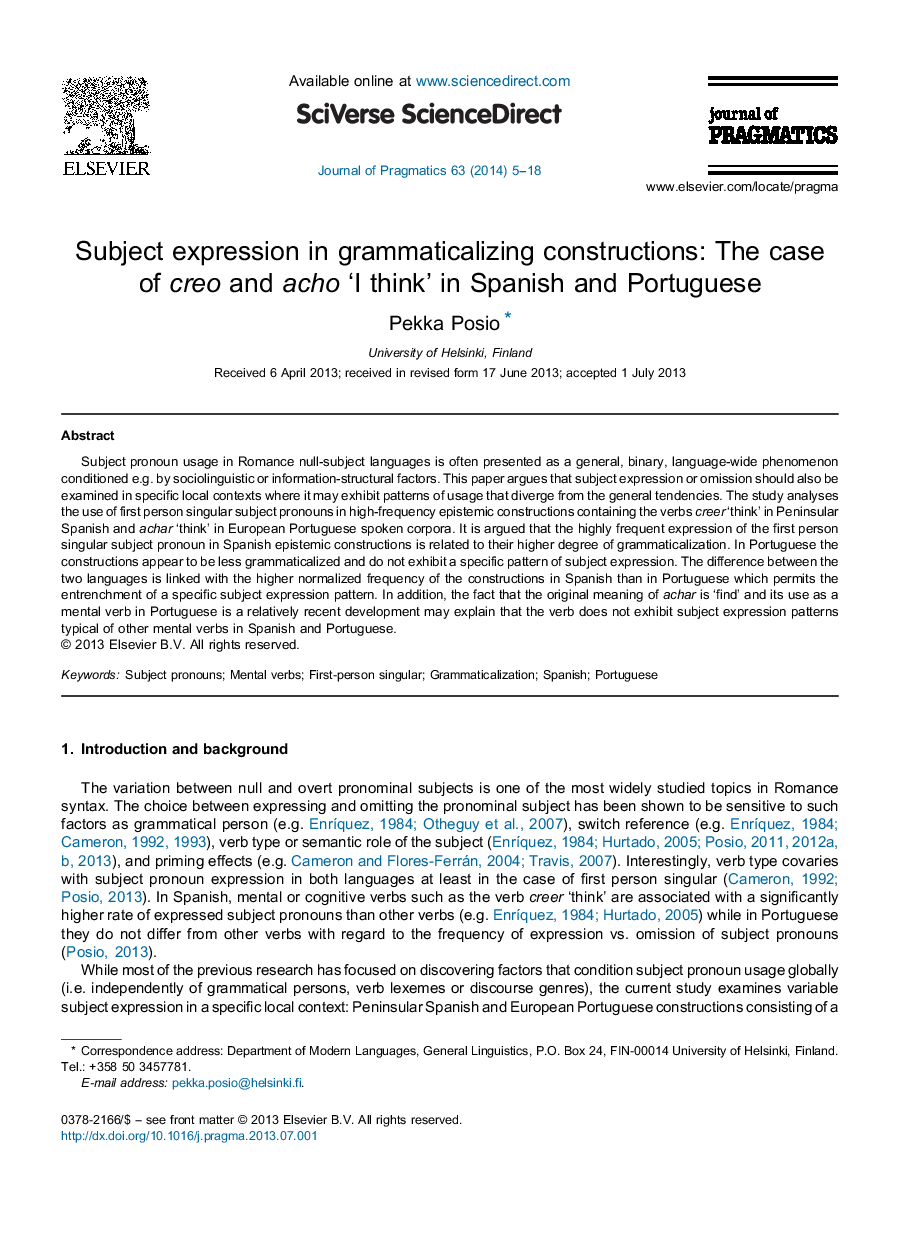| Article ID | Journal | Published Year | Pages | File Type |
|---|---|---|---|---|
| 932791 | Journal of Pragmatics | 2014 | 14 Pages |
•Mental predicates and pro-drop in spoken Peninsular Spanish and European Portuguese.•Highly frequent sequences show sings of grammaticalization in both languages.•Mental predicates have frequent subject expression in Spanish but not in Portuguese.•Higher frequency and more advanced grammaticalization of constructions in Spanish.•Frequency permits the entrenchment of construction-specific morphosyntactic patterns.
Subject pronoun usage in Romance null-subject languages is often presented as a general, binary, language-wide phenomenon conditioned e.g. by sociolinguistic or information-structural factors. This paper argues that subject expression or omission should also be examined in specific local contexts where it may exhibit patterns of usage that diverge from the general tendencies. The study analyses the use of first person singular subject pronouns in high-frequency epistemic constructions containing the verbs creer ‘think’ in Peninsular Spanish and achar ‘think’ in European Portuguese spoken corpora. It is argued that the highly frequent expression of the first person singular subject pronoun in Spanish epistemic constructions is related to their higher degree of grammaticalization. In Portuguese the constructions appear to be less grammaticalized and do not exhibit a specific pattern of subject expression. The difference between the two languages is linked with the higher normalized frequency of the constructions in Spanish than in Portuguese which permits the entrenchment of a specific subject expression pattern. In addition, the fact that the original meaning of achar is ‘find’ and its use as a mental verb in Portuguese is a relatively recent development may explain that the verb does not exhibit subject expression patterns typical of other mental verbs in Spanish and Portuguese.
